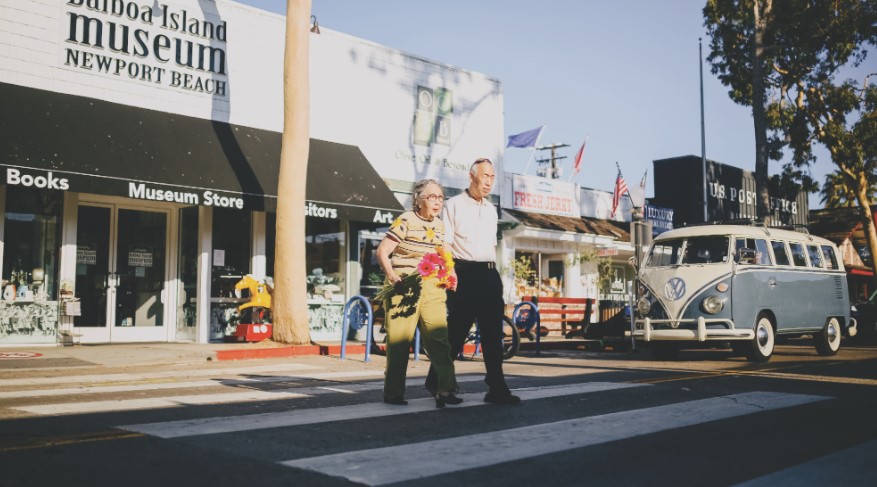[News] Knowledge mobilization project aims to create dementia-inclusive communities

Click HERE to learn more
A team of researchers from Simon Fraser University (SFU) and the University of British Columbia (UBC) are rolling out a knowledge mobilization (KM) project, which aims to create dementia-inclusive communities by providing educational resources, training, and guidelines for municipalities to improve the quality of life for people living with dementia.
The research team is led by Habib Chaudhury, SFU (Principal Investigator), Lillian Hung, UBC (Co-Investigator), and Cari Randa-Beaulieu and Kishore Seetharaman (Project Coordinators). The project is titled, “Developing Knowledge Mobilization Strategies to create Dementia-inclusive Neighbourhood for Community Access, Participation, and Engagement.” This research is funded through the CIHR Operating Grant: Brain Health and Reduction of Risk for Age-related Cognitive Impairment – Knowledge Synthesis and Mobilization Grants.
The KM project is an extension of the multi-year SFU Dementia-inclusive Streets and Community Access, Participation and Engagement (DemSCAPE) project. DemSCAPE focuses on identifying features of neighbourhoods that affect the mobility of people living with dementia to develop an easy-to-use tool to assess the neighbourhood built environment (e.g., pedestrian infrastructure) and identify areas of improvements. Through this project, the research team and Happy Cities have developed Dementia-inclusive planning and design guidelines to facilitate the creation of neighbourhoods that are inclusive, engaging, and accessible.
Summary
To support local municipalities and community-based organizations achieve their plan in developing dementia-friendly communities, this KM project aims to offer training and technical assistance based on education and training resources developed in the DemSCAPE project. The activities planned for this KM project include: 1) screenings of and group discussions based on a short educational and advocacy video and photo exhibit on the importance of streets and neighbourhood spaces for people living with dementia, 2) group discussions with targeted municipal planners to develop guidelines that will assist them apply knowledge of dementia-friendly streets and outdoor spaces to planning and design, and 3) environmental audits of targeted streets in selected municipalities, engaging people living with dementia and identifying possible environmental interventions for the municipal partners.
Background
The neighbourhood environment plays a key role in promoting and maintaining brain health in later life, both through physical and social affordances. For people aging with cognitive decline in the community, the neighbourhood environment offers meaning, value, and purpose, as they navigate through the growing demands of their condition. Thus, a supportive and inclusive neighbourhood is instrumental to maintaining and enhancing the quality of life of people living with dementia in the community. Canada's National Dementia Strategy prioritizes the creation of dementia-friendly and inclusive communities (DFC) that offer a safe, supportive, inclusive, and empowering environment for people living with dementia and their care partners.
A key objective of DFCs is to create an accessible neighbourhood environment that allows people to easily and comfortably get to and be a part of their everyday outdoor activity and destinations without posing undue physical and cognitive challenges. To achieve this objective requires a clear understanding of how dementia shapes people's use of streets and outdoor spaces, as well as how the design and planning of outdoor environments shape movement, spatial navigation and everyday activity of people living with dementia. This understanding is fairly limited both in research and practice, owing to the paucity of empirical evidence on the role of the built environment on mobility, navigation, and community participation of people living with dementia, as well as evidence-based tools and resources that can guide decision-making and planning towards creating a dementia-friendly and inclusive neighbourhood built environment.
Objectives
The objective of the DemSCAPE project was to develop a knowledge base that can guide municipal DFC action plans in British Columbia to implement a dementia-friendly and inclusive approach in decision-making and planning and design of the outdoor built environment. This KM project focuses on utilizing the tools and resources of the DemSCAPE study and work with the municipal partners for raising awareness, education, impacting public policy and potential built environmental interventions in the community.
These KM products will 1) generate awareness of dementia-friendly and inclusive neighbourhood environments for municipalities, non-profit advocacy and community service/support organizations and general public, and 2) support municipal professionals (i.e., planners, designers, engineers, and decision-makers) to apply evidence-based dementia-friendly and inclusive principles to their local planning and design of the builtscape. The project will also assist municipalities to assess targeted neighbourhood locations for dementia-friendliness and strategize potential actions to make these sites more dementia inclusive.
The proposed KM activities include: 1) Dissemination and discussion of a short video and photographs documenting the lived-experience of outdoor mobility among participants from the DemSCAPE study, through in-person and online screenings and exhibitions, and World Cafe events 2) Focus groups with social and physical planners, urban designers, engineers and related staff from two partner municipalities to, and explore the adoption of the dementia-friendly and inclusive planning and design guide developed in the DemSCAPE project, and implementation in policy and practice, 3) Video-and-photo-documented walking audits to evaluate select sites for dementia-inclusivity and accessibility in participating municipalities, with people living with dementia; and one post-audit focus group to report back audit results and strategize potential actions for municipal improvement. These KM activities will help stakeholder groups identify features of the neighbourhood built environment that can foster outdoor mobility and participation of people living with dementia and apply this knowledge towards the creation of dementia-friendly and inclusive outdoor spaces.
Understanding how to create a neighbourhood built environment that supports safety, mobility, engagement, and social participation can contribute towards the enhancement of quality of life of people living with dementia.
To stay up-to-date on the progress of this project, visit the DemSCAPE website: https://www.sfu.ca/demscape.html.
-
Date
Dec 06, 2023
-
By
SFU Gerontology
